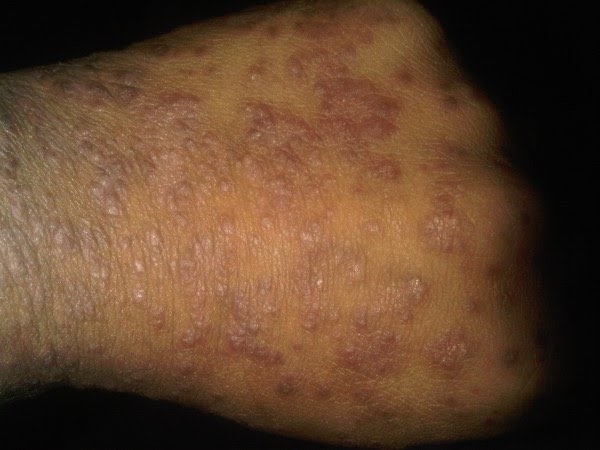News
These are 6 Ways to Support Someone with Psoriasis
 Psoriasis, an autoimmune disease which presents itself in the form of think scaly unsightly rashes on the surface of the skin, is just as emotional as it is physical and can feel like a very lonely experience. To learn more about psoriasis, click here. Along with treatment from a dermatologist, psoriasis patients require a lot of support from friends and family as the condition is known to dampen self-esteem, lead to negative body consciousness and even thoughts of suicide.
Psoriasis, an autoimmune disease which presents itself in the form of think scaly unsightly rashes on the surface of the skin, is just as emotional as it is physical and can feel like a very lonely experience. To learn more about psoriasis, click here. Along with treatment from a dermatologist, psoriasis patients require a lot of support from friends and family as the condition is known to dampen self-esteem, lead to negative body consciousness and even thoughts of suicide.
Here are 6 ways you can support someone who has psoriasis.
- Get informed: managing and supporting patients requires appropriate information. Psoriasis is not contagious, so you cannot get it from standing in close proximity to someone who has psoriasis. Being informed and sharing the information you learn with others will help psoriasis patients face less stigma, reduce societal judgment and misunderstanding about their condition. It will also lead to more acceptance and reduce self-consciousness in those with moderate to severe cases.
- Don’t be judgemental: scalp psoriasis has the tendency to appear as dandruff. Also, the rapid production of skin cells leads to dry scaly patches on the skin. This may lead those unaware of the disease to assume that patients are unkempt or don’t have a healthy daily skin care regime. This is untrue. With psoriasis, the patient has no control over the skin replication process.
- Don’t offer untried home/traditional remedies: there are many self-made remedies on the internet with various claims. While you might be well-meaning, if not properly administered, these remedies could actually lead to a trigger and/or worsening of Psoriasis or cause other conditions. Instead, ensure that your family member or friend has been appropriately diagnosed by a physician and is in regular contact with their dermatologist who will dispense treatment as required.
- Send information: sharing helpful information, especially on social media, on facts about psoriasis and/or new treatment opportunities from verified sources will not only help psoriasis patients remain better informed but will also increase awareness within the wider community on the facts of the condition and increase empathy.
- Recommend that they see a dermatologist: if you know someone who presents some of the psoriasis symptoms mentioned above, they might feel self-conscious and not want to share details of their condition. They may also be using home remedies or self-medicating which could well be exacerbating the condition. Recommending that they see a dermatologist and even offering to accompany them to the first appointment could help calm their nerves and make them open up.
- Listen: as already mentioned, this condition has emotional as well as physical impacts on its sufferers. Sometimes all the patient needs is someone to listen and empathize with them on what they are going through without judgment. Providing that listening ear can be all the support they need.
For more information, please contact your doctor.
This message is brought to you by GSK.
Article references:
- https://www.aad.org/public/diseases/scaly-skin/psoriasis#overview.
- https://www.healthline.com/health/psoriasis/celebrities-with-psoriasis#1.
———————————————————————————————————————————————————————-
Sponsored Content






















